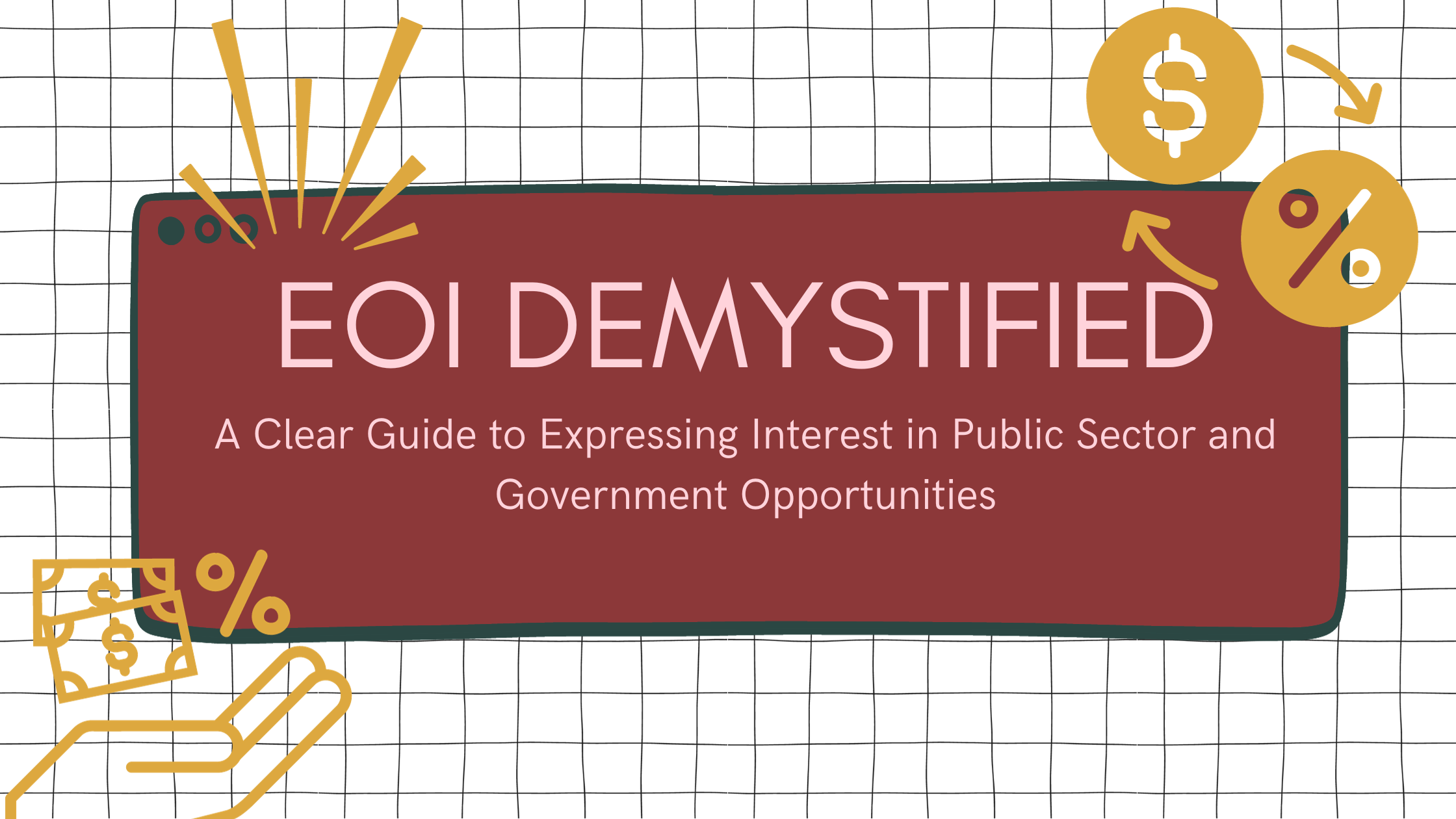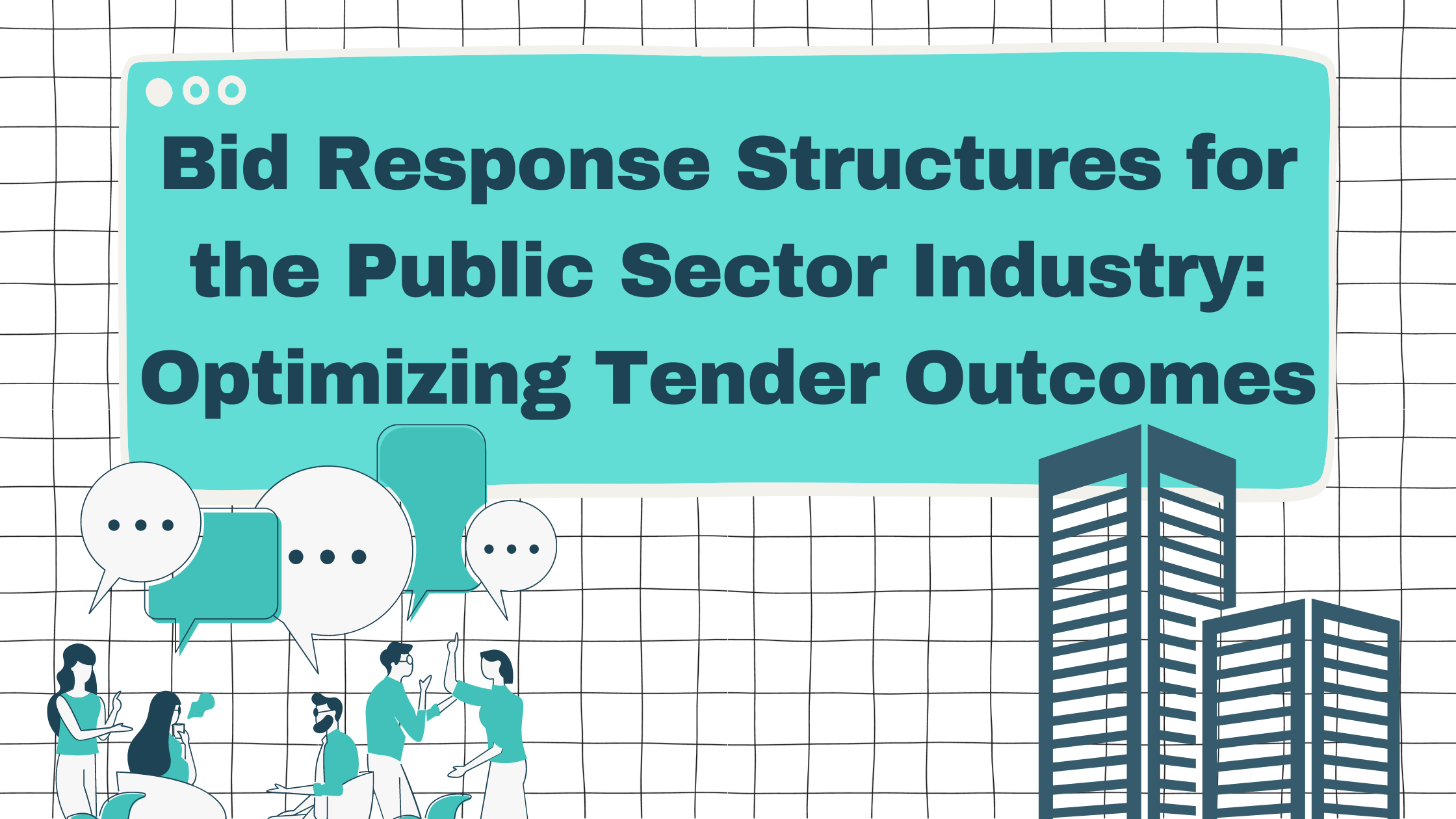Expert Proposal and RFP Writing Services: Winning Strategies Tailored for Your Business

Need Help with Your Bid?
Get in touch by filling out the form and one of our advisors will be in contact.
Contact UsProfessional Bid Writers: Ensuring Your Proposals Win
In the competitive arena of business tenders and proposals, professional bid writers play a pivotal role in driving success. They are specialists in crafting persuasive and comprehensive bid documents that not only meet the stringent requirements of a tender but also highlight a company's strengths in a way that resonates with potential clients. Their expertise lies in understanding the nuances of the bid process and communicating a firm's offer in the most compelling manner possible—increasing the likelihood of winning a contract.

With the critical importance of securing contracts in various industries, the demand for high-quality bid writing services has soared. Professional bid writers use their deep understanding of the tender process to create bids that stand out. It's not just about having a well-written proposal; it's about understanding client needs, industry standards, and the subtle art of persuasion. Employing such experts often reflects positively in the success rate and win rate for businesses vying for coveted projects or service agreements.
Key Takeaways
- Professional bid writers enhance a company's chance to secure contracts with effective and persuasive bid documents.
- Expertise in bid writing and tender processes is critical for improving a business's win rate.
- The success of crafting winning bids depends on a comprehensive understanding of client requirements and strategic communication.
Understanding Bid Writing
Professional bid writers play a critical role in the procurement process by crafting compelling proposals that highlight the strengths and value propositions of their clients' offerings.
The Role of Professional Bid Writers
Professional bid writers are tasked with the creation of documents that pitch for contracts, also known as tenders, used by companies to secure new business opportunities. Their expertise is not limited to just writing; they must also understand the intricacies of the tender process, including the ability to interpret complex questions and requirements. This involves a dual skill set: robust writing skills and industry-specific knowledge to construct answers that are both technical and persuasive.
They ensure that the unique selling points (USPs) of a service or product are communicated effectively, aligning the proposal with the potential client’s needs and expectations. Professional bid writers turn technical solutions into accessible content that can appeal to decision-makers who may not have specialist knowledge of the domain. As highlighted in Thornton and Lowe's Ultimate Guide, the process of bid writing encompasses a range of tasks far beyond the creation of a simple document.
Bid Writing Services and Support
When businesses lack the time or expertise required to write bids, they might opt for bid writing services. Providers of these services offer support by augmenting a business's in-house capabilities with external proficiency. The extent of the bid writing support can vary from consultancy on an existing bid to the complete management of the tender submission process.
Companies like Hudson Succeed offer teams of experienced bid writers who cover a vast range of sectors, bringing with them a collective wealth of knowledge. These teams assist businesses of all sizes in improving their tendering efforts and often boast high success rates, which serve as a testament to their skill and experience. In selecting the right professional bid writer, companies need to consider the bid writer's understanding of the industry, their previous success rates, and their ability to distill complex information into digestible content.
The Tender Process
The tender process is integral to securing contracts and requires a meticulous approach to identifying opportunities and adhering to stringent policies and procedures.
Identifying Tender Opportunities
Organizations must diligently monitor various sources to uncover applicable tender opportunities. This can involve subscribing to tender notification services, perusing government portals, and leveraging industry contacts. Once a tender that matches the organization's capabilities is identified, a comprehensive evaluation is necessary to determine the feasibility of crafting a winning proposal.
Compliance With Policies and Procedures
Compliance with the established policies and procedures is paramount in tender writing. Every tender submission must align with the specific requirements outlined in the tender document. This typically includes adherence to formatting guidelines, submission deadlines, and provision of mandatory information such as company financials and technical capabilities. Failure to comply can result in disqualification from the tendering process.
Crafting Winning Bids
In the competitive arena of tender submissions, professional bid writers focus on creating winning bids by developing a compelling narrative and highlighting unique selling points (USPs) to set their proposals apart.
Developing a Compelling Narrative
Successful bid writers establish a clear, engaging story of why their company is the optimal choice for fulfilling a contract. They meticulously craft each section of the bid to contribute to an overarching narrative that aligns with the client’s objectives. Strong narratives are not just informative—they are persuasive and memorable, making them one of the foundational elements of winning bids.
Highlighting Unique Selling Points
In order to make a bid stand out, identifying and emphasizing the USPs is crucial. These differentiators are the traits that distinguish a service or product from the competition. Professional bid writers strategically weave these USPs into the fabric of their bids, ensuring that each win theme is clear and directly tied to the benefits for the client. This often involves a direct comparison of features, benefits, and outcomes that their offering excels in, compared to others.
Sector-Specific Bid Writing Strategies
In the competitive realm of bidding, sector-specific strategies are essential for a stand-out submission. Each industry calls for a tailored approach, leveraging industry norms and specific expertise, to persuade evaluators.
Professional Services and Construction
Professional services and construction sectors are characterized by the need for a meticulous understanding of project scopes and the impact on stakeholders. Bid writers in these fields often emphasize:
- Compliance with Industry Standards: They ensure that all proposals adhere to regulations such as health and safety, which is paramount in construction.
- Case Studies and Testimonials: To build trust, professional services bids include detailed evidence of past success and client endorsements.
Construction bids, in particular, demonstrate a firm grasp of timelines, budgeting, and project management capabilities, often using visual aids like Gantt charts to outline project plans.
Transport, Environment, and Social Care
Bids within the transport, environment, and social care sectors require:
- Innovative Solutions: Bid writers showcase cutting-edge technology applications, such as sustainable materials in transport or eco-friendly practices in environmental initiatives.
- Community Impact Analysis: In social care, bids contain well-researched details on how services will benefit local communities, aligning with the societal goals of the tendering authority.
Transport bids often highlight logistical excellence and customer satisfaction metrics, while environmental bids might focus on compliance with specific environmental regulations and certifications.
Each sector demands bids that are not only well-researched and compliant but also presented in a way that makes the unique value proposition absolutely clear.
Optimizing the Bid Review Process
Professional bid writers recognize the importance of a meticulous bid review process to enhance the quality and competitiveness of their submissions. Implementing strategic bid management techniques and incorporating external reviewers are key to optimizing this phase.
Incorporating Bid Management Techniques
Bid management involves systematic methods to ensure that every aspect of a bid is addressed with precision. Key techniques include:
- Structured timelines: Establishing a clear schedule that allocates sufficient time for each review phase.
- Checklists: Using detailed checklists can help ensure no critical components are overlooked.
- Quality controls: Embedding multiple quality assurance checkpoints throughout the bid writing process improves the overall standard of the submission.
Each of these steps can offer a fresh pair of eyes at different stages, helping to identify inconsistencies or areas of improvement that may be missed by those too close to the project.
Seeking External Reviewers
The role of external reviewers is crucial in providing an objective assessment of a bid. They bring a new perspective that can highlight areas needing clarification or enhancement. Here's how they contribute:
- Objectivity: An external reviewer is more likely to spot errors and offer impartial feedback.
- Expertise: Reviewers with subject matter expertise can provide insights on how to improve the technical aspects of a bid.
It is essential for reviewers to understand the requirements thoroughly to ensure their feedback is relevant and constructive. Providing them with a comprehensive brief is critical for an effective review.
Conclusion
The final stage of bid writing involves reflection and advancement. A professional bid writer not only delivers an error-free and readable submission but also ensures that the presentation aligns with the core objectives of achieving business success.
Leveraging Lessons from Successful Bids
They dissect winning bids to understand the elements that resonated with clients. Often, this entails analyzing the structure, clarity, and strategies employed. It is through this meticulous review that bid writers isolate potent tactics—such as compelling narratives or persuasive data presentation—that could be replicated or adapted in future proposals.
Committing to Continuous Improvement
Commitment to improvement is non-negotiable for professionals aiming to maintain a competitive edge. This includes regular training and staying abreast of industry standards to enhance the quality of each bid. A dedicated bid writer is always refining their process to ensure that every submission moves closer to the goal of securing business growth and success.
Frequently Asked Questions
This section addresses the most pertinent inquiries potential clients have about engaging professional bid writers to enhance their bid submission process.
What qualifications should I look for in a professional bid writer?
Clients should seek bid writers who are experienced and possess certifications or training in bid management, writing, or relevant industry accreditation. It is essential that they have a clear understanding of the procurement process and skills in business communication.
How does hiring a professional bid writer improve my chances of winning a bid?
Professional bid writers bring a wealth of expertise, including an ability to eloquently articulate value propositions and align the bid with the tender's evaluation criteria. Their familiarity with the bidding landscape significantly increases the likelihood of submitting a winning proposal.
What are the industry standard rates for professional bid writing services?
Rates vary widely depending on the scope and complexity of the tender. They can be project-based, hourly, or even retainership agreements. It is important for clients to request detailed quotes to understand the full extent of the service being provided.
Can professional bid writers provide references or examples of successful bids?
Yes, established bid writers can provide clients with references or anonymized examples of successful bids, emphasizing their track record and experience.
What is the typical turnaround time for creating a comprehensive bid proposal?
The turnaround time is contingent on the bid's complexity, but generally, a comprehensive proposal can take several weeks. An experienced bid writer will work to ensure they meet the deadlines while allowing time for client input and revisions.
How do professional bid writers stay current with industry trends and compliance requirements?
They maintain their edge by regularly attending industry workshops, subscribing to tender notification services, and engaging with professional bid and proposal management communities to stay abreast of the latest developments and compliance requisites.
Ready to start your search?
Get in touch by filling out the form to the right and one of our advisors will curate a personalised selection for you.
Get in touchBlogs. Guides. Helpful advice.

Mastering Proposal and RFP Writing for Government and Public Sector Opportunities

Proposal and RFP Writing Services: Enhancing Public Sector Tender Outcomes

.svg)